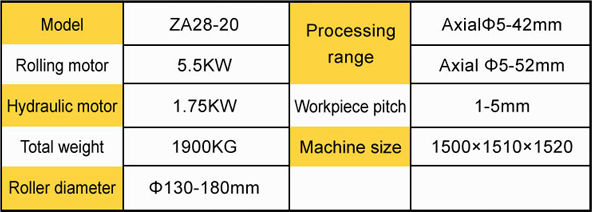
-
 Afrikaans
Afrikaans -
 Albanian
Albanian -
 Amharic
Amharic -
 Arabic
Arabic -
 Armenian
Armenian -
 Azerbaijani
Azerbaijani -
 Basque
Basque -
 Belarusian
Belarusian -
 Bengali
Bengali -
 Bosnian
Bosnian -
 Bulgarian
Bulgarian -
 Catalan
Catalan -
 Cebuano
Cebuano -
 Corsican
Corsican -
 Croatian
Croatian -
 Czech
Czech -
 Danish
Danish -
 Dutch
Dutch -
 English
English -
 Esperanto
Esperanto -
 Estonian
Estonian -
 Finnish
Finnish -
 French
French -
 Frisian
Frisian -
 Galician
Galician -
 Georgian
Georgian -
 German
German -
 Greek
Greek -
 Gujarati
Gujarati -
 Haitian Creole
Haitian Creole -
 hausa
hausa -
 hawaiian
hawaiian -
 Hebrew
Hebrew -
 Hindi
Hindi -
 Miao
Miao -
 Hungarian
Hungarian -
 Icelandic
Icelandic -
 igbo
igbo -
 Indonesian
Indonesian -
 irish
irish -
 Italian
Italian -
 Japanese
Japanese -
 Javanese
Javanese -
 Kannada
Kannada -
 kazakh
kazakh -
 Khmer
Khmer -
 Rwandese
Rwandese -
 Korean
Korean -
 Kurdish
Kurdish -
 Kyrgyz
Kyrgyz -
 Lao
Lao -
 Latin
Latin -
 Latvian
Latvian -
 Lithuanian
Lithuanian -
 Luxembourgish
Luxembourgish -
 Macedonian
Macedonian -
 Malgashi
Malgashi -
 Malay
Malay -
 Malayalam
Malayalam -
 Maltese
Maltese -
 Maori
Maori -
 Marathi
Marathi -
 Mongolian
Mongolian -
 Myanmar
Myanmar -
 Nepali
Nepali -
 Norwegian
Norwegian -
 Norwegian
Norwegian -
 Occitan
Occitan -
 Pashto
Pashto -
 Persian
Persian -
 Polish
Polish -
 Portuguese
Portuguese -
 Punjabi
Punjabi -
 Romanian
Romanian -
 Russian
Russian -
 Samoan
Samoan -
 Scottish Gaelic
Scottish Gaelic -
 Serbian
Serbian -
 Sesotho
Sesotho -
 Shona
Shona -
 Sindhi
Sindhi -
 Sinhala
Sinhala -
 Slovak
Slovak -
 Slovenian
Slovenian -
 Somali
Somali -
 Spanish
Spanish -
 Sundanese
Sundanese -
 Swahili
Swahili -
 Swedish
Swedish -
 Tagalog
Tagalog -
 Tajik
Tajik -
 Tamil
Tamil -
 Tatar
Tatar -
 Telugu
Telugu -
 Thai
Thai -
 Turkish
Turkish -
 Turkmen
Turkmen -
 Ukrainian
Ukrainian -
 Urdu
Urdu -
 Uighur
Uighur -
 Uzbek
Uzbek -
 Vietnamese
Vietnamese -
 Welsh
Welsh -
 Bantu
Bantu -
 Yiddish
Yiddish -
 Yoruba
Yoruba -
 Zulu
Zulu
Exploring the Benefits and Applications of Thread Rolling Machines in Manufacturing Operations
Understanding the HS Code for Thread Rolling Machines A Comprehensive Guide
When engaging in international trade, it is critical to understand the various classifications and codes used to identify products. One such classification system is the Harmonized System (HS) code, which is a standardized numerical method of classifying traded products. This article focuses on the HS code pertaining to thread rolling machines and the implications for businesses looking to import or export these machines.
What is a Thread Rolling Machine?
Thread rolling machines are specialized equipment used for manufacturing screws, bolts, and other fasteners through the process of forming threads on a cylindrical workpiece. This is achieved by applying pressure to the workpiece between rotating dies, which results in a precise and durable thread profile. Thread rolling is recognized for its efficiency, producing strong threads without cutting material, and is widely used in industries such as automotive, aerospace, and construction.
Importance of HS Code
The HS code is vital for several reasons 1. Customs Declaration Accurate HS code classification is necessary for customs clearance. Customs authorities around the world use these codes to assess the duties and taxes applicable to imports and exports. 2. Statistical Data Governments and organizations analyze trade data categorized by HS codes, thus supporting economic policy and international trade agreements. 3. Market Access and Regulations Certain regulations and trade agreements may apply only to specific HS code categories, affecting market access.
The HS Code for Thread Rolling Machines
The HS code for thread rolling machines typically falls under the broader category of machinery used in metalworking. The exact classification may vary depending on the specific model and its operation. For instance, thread rolling machines are commonly categorized under HS codes such as
buy thread rolling machine hs code

- 8462.10 This specifically relates to machines for working metal by cutting, grinding, or punching, which can include thread rolling equipment. - 8457.10 This category includes various types of machinery for shaping metal, which may also encompass thread rolling machines if they have additional features.
Before making a purchase or sale, businesses are encouraged to consult with trade experts or customs authorities to ensure the correct HS code is applied.
Compliance and Documentation
When importing or exporting thread rolling machines, compliance with local regulations and international trade laws is paramount. This requires thorough documentation, including - Commercial Invoices Detailed invoices listing the HS code, description of the machine, quantity, and value. - Certificates of Origin Proof of where the machine was manufactured, which can impact tariff rates. - Import/Export Licenses Depending on local laws, certain machinery may require specific licenses to trade.
Conclusion
For businesses involved in the trade of thread rolling machines, understanding the relevant HS code is essential for successful transactions. Proper classification facilitates smoother customs processes, ensures compliance with regulations, and aids in effective strategic planning. As international trade continues to grow, thorough knowledge of HS codes will empower businesses to navigate market dynamics efficiently and capitalize on opportunities for expansion.
Investing time in understanding the nuances of thread rolling machine HS codes can ultimately lead to more informed decisions and successful trade outcomes, enabling businesses to thrive in a competitive landscape.
